Self-service provisioning is another way of describing on-demand, elastic access to IT resources and is a defining facet of cloud computing and DevOps. It uses automation and orchestration to eliminate the manual handoffs that typically slow down digital transformation projects.
A key aspect of self-service provisioning is the ability to request appropriate services from a centralized catalog of curated items using a variety of interfaces based on user and organizational preference.
The Morpheus instance catalog provides on-demand delivery of OS’s, databases, web servers, and more including options for bare metal, VM, containers, and cloud-native items or PaaS services.
Layouts can range from a single machine to complex clusters complete with auto-scale rules and primary/secondary node dependencies.
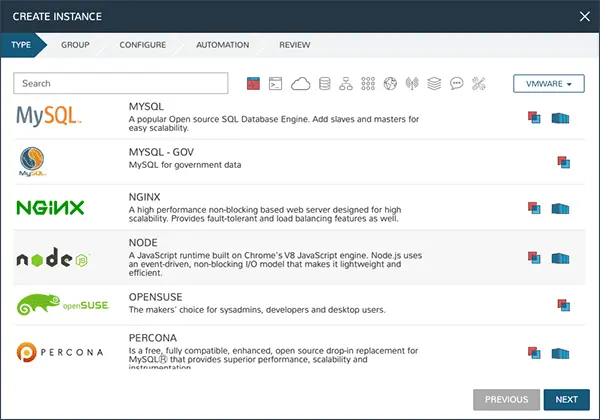
Morpheus ships with 50 common applications but most customers use the library builder to add their own approved virtual images.
An instance can have multiple layouts so a single service could have options for private or public cloud.
Run workflows for configuration management, embed security policies, and more as part of fully automated self-service provisioning.
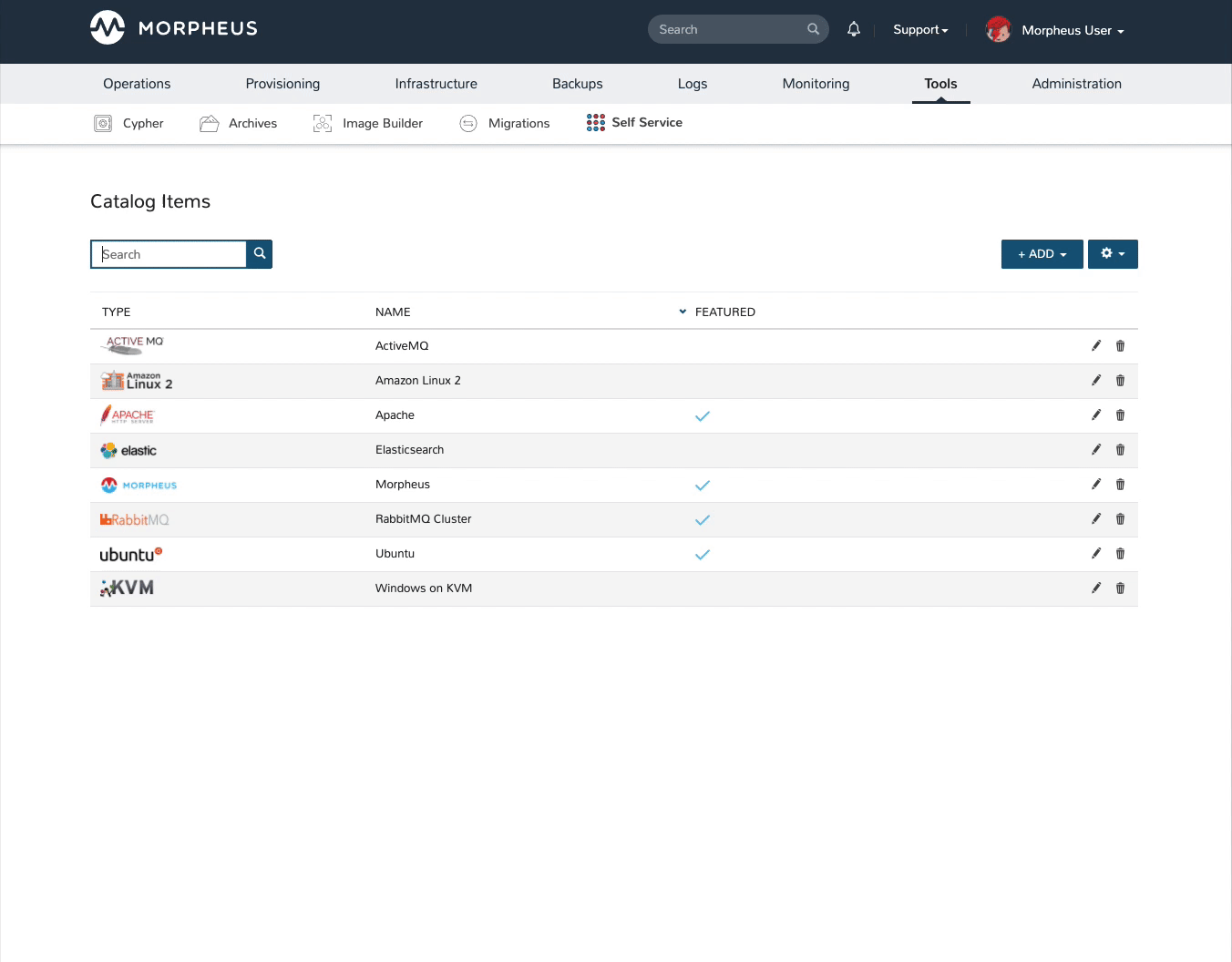
Some users just need simple point and click provisioning with very few options. No fuss and no friction.
Admins use the designer to decide exactly what information to collect from the form.
Catalog items can be any Morpheus instance. We’ll be adding support for Applications and Operational Workflows soon for true XaaS.
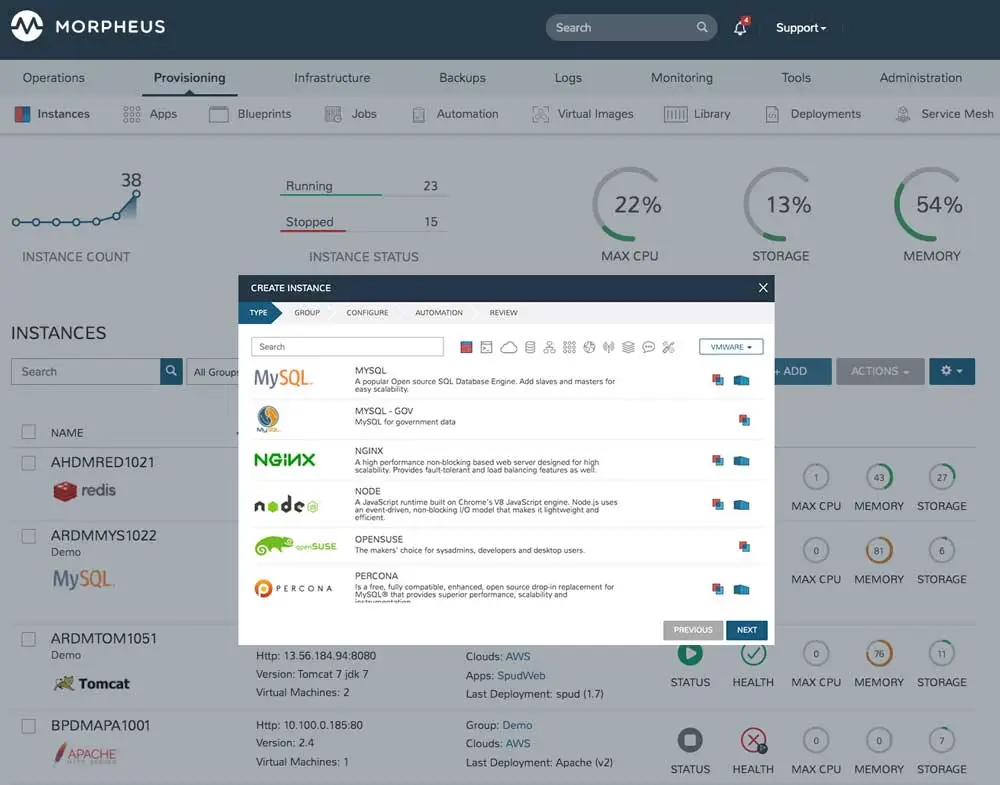
The classic interface meets a range of cloud provisioning demands from programmer to power user. All features and options can be exposed or hidden based on role.
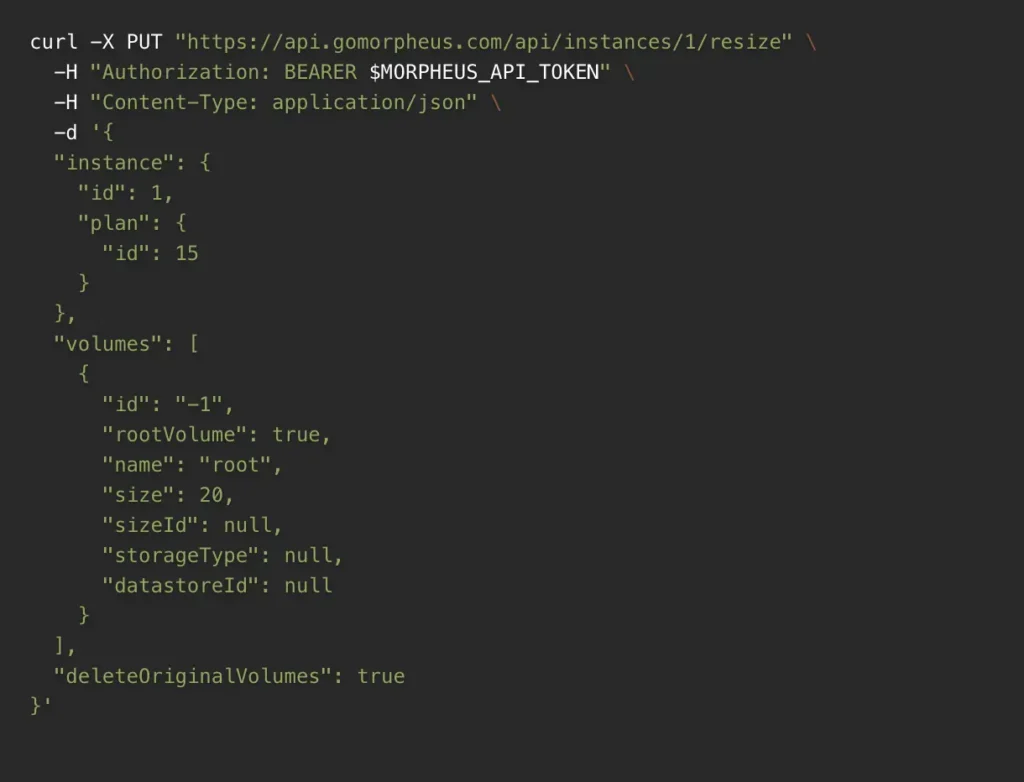
Call from your CI/CD pipeline to build, destroy, and promote for test/dev, QA, and prod.
The API is a RESTful HTTP interface and mirrors everything in the GUI to manipulate resources and automate provisioning within your pipeline.
The CLI is a ruby gem with 800 commands that provides the MORPHEUS executable and makes requests to the API.
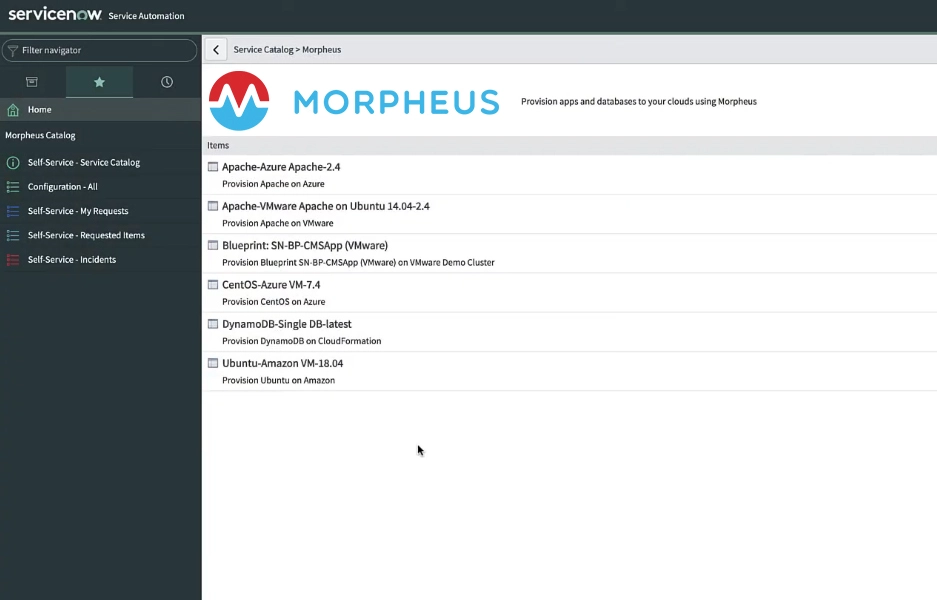
Enable instances and applications to be ordered inside ServiceNow.
This simplifies ServiceNow administration by letting Morpheus be the single source of cloud orchestration.
Morpheus will maintain CMDB records plus integrates with approvals and incident management.
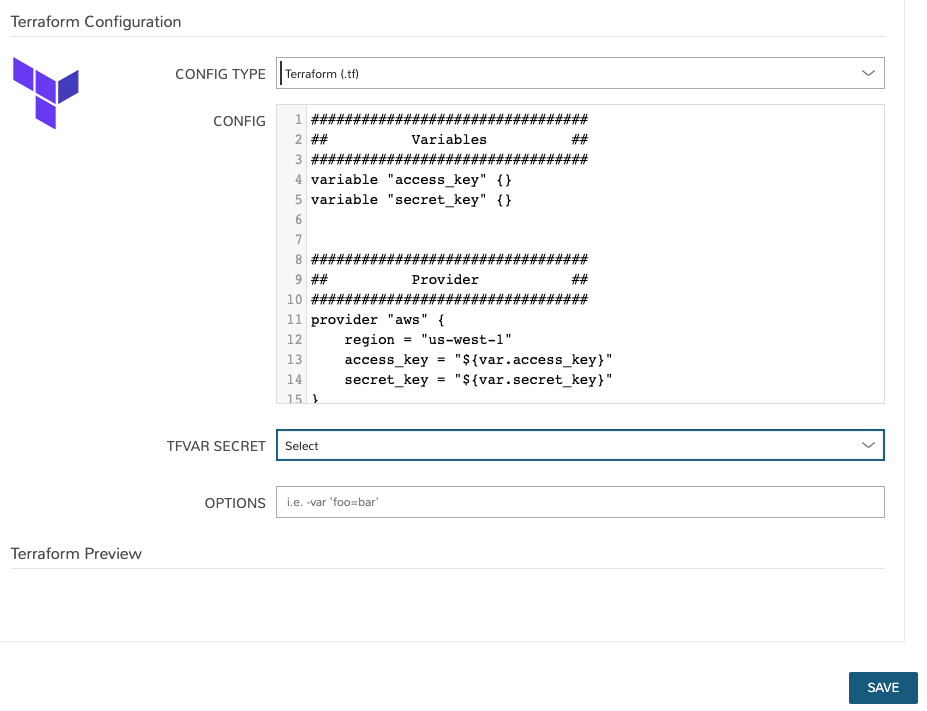
Blueprints are one way that companies can adopt Infrastructure-as-Code. In addition to the Morpheus DSL we support Terraform, CloudFormation, ARM, K8 Spec, and HELM. We also have a Terraform Provider to simplify use of Terraform on-prem.
Morpheus and Terraform are complementary technologies that together can increase efficiency and simplify automation across cloud environments.
Mix and match technology types in multi-tier structures that include boot order, service checks, and dependencies.
A single blueprint can be provisioned into any cloud to simplify hybrid cloud deployments.
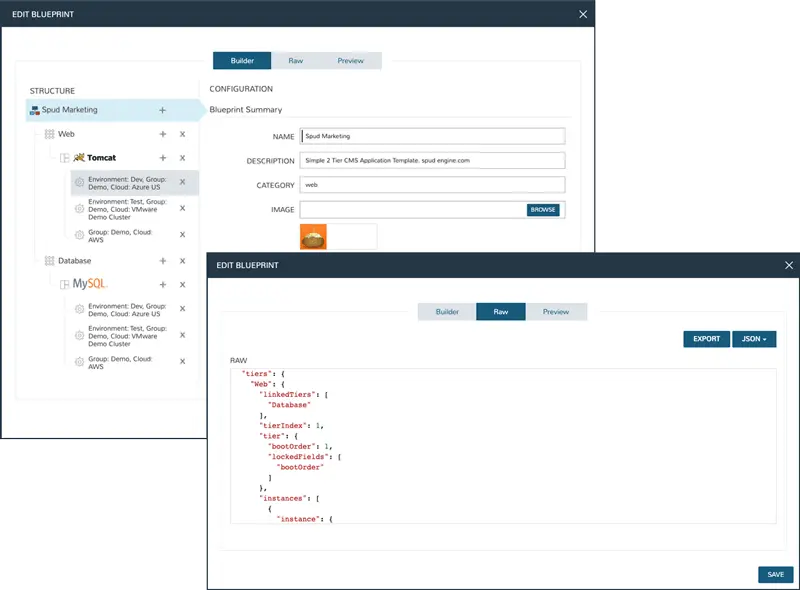
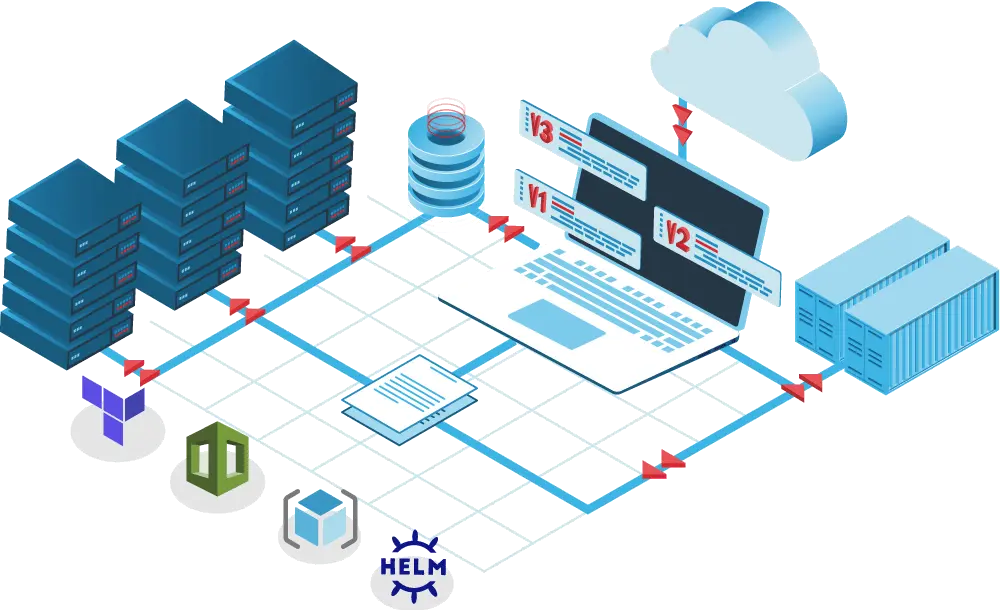
Easily create blueprints in the graphical builder or API/CLI then export as YAML or JSON for sharing and portability. Use blueprints as part of your DevOps pipelines including triggering from Jenkins and deploying code artifacts.
Morpheus makes on-premises infrastructure-as-code as simple as public clouds with a single template and provider plus bridges the painful gap between IaC and application configuration.
Wrap Morpheus governance and control around Terraform, AWS CloudFormation, Microsoft ARM, Kubernetes Spec, or HELM.
Import templates or reference Git repos for versioning. Morpheus will parse templates and present input fields for users at provision time.